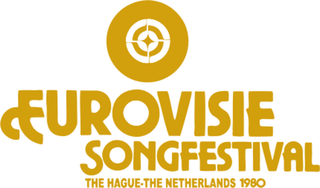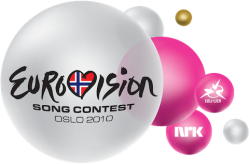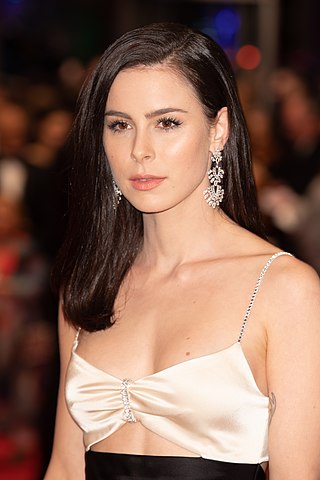Related Research Articles

The Eurovision Song Contest 1993 was the 38th edition of the Eurovision Song Contest, held on 15 May 1993 at the Green Glens Arena in Millstreet, Ireland. Organised by the European Broadcasting Union (EBU) and host broadcaster Radio Telefís Éireann (RTÉ), and presented by Fionnuala Sweeney, the contest was held in Ireland following the country's victory at the 1992 contest with the song "Why Me?" performed by Linda Martin.

The Eurovision Song Contest 1989 was the 34th edition of the Eurovision Song Contest, held on 6 May 1989 in the Palais de Beaulieu in Lausanne, Switzerland. Organised by the European Broadcasting Union (EBU) and host broadcaster Télévision suisse romande (TSR) on behalf of the Swiss Broadcasting Corporation, and presented by Jacques Deschenaux and Lolita Morena, the contest was held in Switzerland following the country's victory at the 1988 contest with the song "Ne partez pas sans moi" by Céline Dion.

The Eurovision Song Contest 1988 was the 33rd edition of the Eurovision Song Contest, held on 30 April 1988 in the RDS Simmonscourt Pavilion in Dublin, Ireland and presented by Pat Kenny and Michelle Rocca. Organised by the European Broadcasting Union (EBU) and host broadcaster Radio Telefís Éireann (RTÉ), the contest was held in Ireland following the country's victory at the 1987 contest with the song "Hold Me Now" by Johnny Logan.

The Eurovision Song Contest 1980 was the 25th edition of the annual Eurovision Song Contest. It took place in The Hague, Netherlands, and was organised by host broadcaster Nederlandse Omroep Stichting (NOS) – which agreed to stage the event after Israel, having won in both 1978 and 1979, declined to host it for a second successive year – and the European Broadcasting Union (EBU). The contest was held at the Nederlands Congresgebouw on 19 April 1980 and was hosted by Dutch actress Marlous Fluitsma, although each song was introduced by a presenter from the participating nation.

The Eurovision Song Contest 1984 was the 29th edition of the Eurovision Song Contest, held on 5 May 1984 in the Théâtre Municipal in Luxembourg City, Luxembourg. Organised by the European Broadcasting Union (EBU) and host broadcaster Radio Télévision Luxembourg (RTL), the contest was held in Luxembourg following the country's victory at the 1983 contest with the song "Si la vie est cadeau" by Corinne Hermès. The event was presented by Désirée Nosbusch, who, at 19 years old, remains the youngest person to have hosted the contest as of 2024.

The Eurovision Song Contest 1998 was the 43rd edition of the annual Eurovision Song Contest, held on 9 May 1998 at the National Indoor Arena in Birmingham, United Kingdom. Organised by the European Broadcasting Union (EBU) and host broadcaster the British Broadcasting Corporation (BBC) and presented by Terry Wogan and Ulrika Jonsson, the contest was held in the United Kingdom following the country's victory at the 1997 contest with the song "Love Shine a Light" by Katrina and the Waves.

The Eurovision Song Contest 1997 was the 42nd edition of the annual Eurovision Song Contest, held on 3 May 1997 at the Point Theatre in Dublin, Ireland. Organised by the European Broadcasting Union (EBU) and host broadcaster Radio Telefís Éireann (RTÉ) and presented by Carrie Crowley and Ronan Keating, the contest was held in Ireland following the country's victory at the 1996 contest with the song "The Voice" by Eimear Quinn. The 1997 contest was the seventh – and to date last – edition to be staged in Ireland, as well as the fourth to be produced by RTÉ in five years. The Point Theatre served as the host venue for the third time, following the 1994 and 1995 contests, becoming the only venue to have been the site of three Eurovision Song Contests.

Stefan Konrad Raab is a German entertainer, television host, television producer, and businessman. From 1999 to 2015, he hosted the late-night comedy talk show TV total on ProSieben. He also created a number of other television shows on the channel, such as Schlag den Raab and Bundesvision Song Contest.

Maximilian Nepomuk Mutzke is a German singer, songwriter and television personality. He gained public interest in early 2004 when he won SSDSGPS, a talent contest hosted in Stefan Raab's late-night show TV total. Mutzke subsequently qualified for and won the national pre-selection for the Eurovision Song Contest 2004, Germany 12 Points!, and thus represented Germany with his debut single "Can't Wait Until Tonight" that year, eventually finishing eighth in a field of 24 participants. Meanwhile, "Can't Wait Until Tonight" debuted atop the German singles chart and became a top five hit in Austria and Switzerland. His eponymous debut album, a mixture of soul and pop songs in German and English language, was released in January 2005 and also reached number one in Germany, where it was certified gold by the Bundesverband Musikindustrie (BVMI).

The Eurovision Song Contest 2006 was the 51st edition of the Eurovision Song Contest. It took place in Athens, Greece, following the country's victory at the 2005 contest with the song "My Number One" by Helena Paparizou. Organised by the European Broadcasting Union (EBU) and host broadcaster Hellenic Broadcasting Corporation (ERT), the contest was held at the Olympic Indoor Hall, and consisted of a semi-final on 18 May, and a final on 20 May 2006. The two live shows were presented by American television personality Maria Menounos and Greek former contestant Sakis Rouvas.

The Eurovision Song Contest 2008 was the 53rd edition of the Eurovision Song Contest. It took place in Belgrade, Serbia, following the country's victory at the 2007 contest with the song "Molitva" by Marija Šerifović. Organised by the European Broadcasting Union (EBU) and host broadcaster Radio Television of Serbia (RTS), the contest was held at the Belgrade Arena, and consisted of two semi-finals on 20 and 22 May, and a final on 24 May 2008. The three live shows were presented by Serbian television presenter Jovana Janković and musician Željko Joksimović.
Germany participated in the Eurovision Song Contest 2009 with the song "Miss Kiss Kiss Bang" written by Alex Christensen and Steffen Häfelinger. The song was performed by Alex Swings Oscar Sings!, consisting of producer Alex Christensen and singer Oscar Loya. The German entry for the 2009 contest in Moscow, Russia was internally selected by the German broadcaster ARD in collaboration with Norddeutscher Rundfunk (NDR). The announcement of "Miss Kiss Kiss Bang" as the German entry occurred on 9 February 2009 and the presentation of the song occurred during the Echo Music Prize awards show on 21 February 2009.

The Eurovision Song Contest 2012 was the 57th edition of the Eurovision Song Contest. It took place in Baku, Azerbaijan, following the country's victory at the 2011 contest with the song "Running Scared" by Ell and Nikki. It was the first time Azerbaijan hosted the contest – only four years after the country made its debut. Organised by the European Broadcasting Union (EBU) and host broadcaster İctimai Television (İTV), the contest was held at the Baku Crystal Hall, and consisted of two semi-finals on 22 and 24 May, and a final on 26 May 2012. The three live shows were presented by Azerbaijani television presenter Leyla Aliyeva, newsreader Nargiz Birk-Petersen and singer Eldar Gasimov, the latter of whom was one of the previous edition's winners.

The Eurovision Song Contest 2010 was the 55th edition of the Eurovision Song Contest. It took place in Oslo, Norway, following the country's victory at the 2009 contest with the song "Fairytale" by Alexander Rybak. Organised by the European Broadcasting Union (EBU) and host broadcaster Norsk rikskringkasting (NRK), the contest was held at the Telenor Arena, and consisted of two semi-finals on 25 and 27 May, and a final on 29 May 2010, tying with the 1999 edition for the contest hosted the latest. The three live shows were presented by Norwegian television presenters Erik Solbakken and Nadia Hasnaoui and singer Haddy N'jie.

Barbara von Schierstädt is a German television presenter, entertainer, actress and singer.

Lena Johanna Therese Meyer-Landrut, also known by the mononym Lena, is a German singer. She rose to fame after representing Germany in the Eurovision Song Contest 2010 in Oslo, winning the event with the song "Satellite". Both "Satellite" and her debut album My Cassette Player (2010) debuted at number one in Germany and became platinum sellers. With her three entries from the German national final Unser Star für Oslo, Meyer-Landrut set an all-time chart record in her home country by debuting with three songs in the top five of the German Singles Chart. She represented Germany for the second consecutive time in the Eurovision Song Contest 2011 in Düsseldorf with the song "Taken by a Stranger", finishing in tenth place.
Germany was represented at the Eurovision Song Contest 2000 with the song "Wadde hadde dudde da?" written and performed by Stefan Raab. The German participating broadcaster on behalf of ARD, Norddeutscher Rundfunk (NDR), organised the national final Countdown Grand Prix Eurovision 2000 in order to select their entry for the contest. The national final took place on 18 February 2000 and featured eleven competing acts with the winner being selected through public televoting. "Wadde hadde dudde da?" performed by Stefan Raab was selected as the German entry for Stockholm after gaining 882,569 of the votes.

Oliver Michael Dittrich is a German television personality, comedian, actor, and musician.
Germany participated in the Eurovision Song Contest 2013 with the song "Glorious" written by Yann Peifer, Manuel Reuter, Andres Ballinas and Tony Cornelissen. The song was performed by Cascada. The German entry for the 2013 contest in Malmö, Sweden was selected through the national final Unser Song für Malmö, organised by the German broadcaster ARD in collaboration with Norddeutscher Rundfunk (NDR). The national final took place on 14 February 2013 and featured twelve competing acts with the winner by the votes of a five-member jury panel, a radio vote and a public televote. "Glorious" performed by Cascada was selected as the German entry for Malmö after gaining the most points following the combination of votes.
Germany participated in the Eurovision Song Contest 2019 with the song "Sister" written by Laurell Barker, Marine Kaltenbacher, Tom Oehler and Thomas Stengaard. The song was performed by the duo S!sters, consisting of Laurita Kästel and Carlotta Truman. The German entry for the 2019 contest in Tel Aviv, Israel was selected through the national final Unser Lied für Israel, organised by the German broadcaster ARD in collaboration with Norddeutscher Rundfunk (NDR). The national final took place on 22 February 2019 and featured seven competing acts with the winner selected by the votes of a 100-member Eurovision panel, a 20-member international jury panel and a public televote. "Sister" performed by S!sters was selected as the German entry for Tel Aviv after gaining the most points following the combination of votes.
References
- 1 2 Feddersen, Jan (2018-02-06). "Interview mit Bühnendesigner Florian Wieder". eurovision.de (in German). Retrieved 2023-12-23.
- ↑ "Über ein Prince-Konzert zum Eurovision Song Contest". HNA (in German). 2015-05-05. Retrieved 2023-12-24.
- ↑ Choi, Mary H. K. (2012-09-06). "VMA Set Designer Explains Futuristic Inspiration, Remixed Architecture [Interview]". MTV . Archived from the original on December 24, 2023. Retrieved 2023-12-23.
- 1 2 3 4 W., Pauly (2021-04-13). "Rotterdam 2021, côté coulisses : Florian Wieder". L'Eurovision au Quotidien (in French). Retrieved 2023-12-24.
- 1 2 Lückerath, Thomas; Mantel, Uwe (2013-06-19). "Wieder über Setdesign: "Deutschland ist sehr konservativ"". DWDL (in German). Retrieved 2023-12-24.
- ↑ Weiß, Hermann (2005-10-02). "Ein Sofa für Maischberger". WELT (in German). Retrieved 2023-12-24.
- ↑ Haase, Jana (2008-11-20). "Landeshauptstadt: Vorbereitung auf Raab". Der Tagesspiegel . Retrieved 2023-12-24.
- ↑ Huber, Joachim; Álvarez, Sonja (2011-11-02). "Neues ARD-Vorabend-Format: "Tagesshow": Gottschalk hält Hof am Gendarmenmarkt". Der Tagesspiegel . Retrieved 2023-12-24.
- ↑ Krei, Alexander (2008-09-25). "Kuschelig und modern: So wird das neue "Wetten, dass..?"". Quotenmeter (in German). Retrieved 2023-12-24.
- 1 2 Hildebrandt, Antje (2008-10-03). "Alles neu bei Gottschalks "Wetten, dass ..?"". Berliner Morgenpost (in German). Retrieved 2023-12-24.
- ↑ Roxborough, Scott (2006-10-23). "ZDF 'Dresden' wins top honor for German TV". The Hollywood Reporter . Retrieved 2023-12-23.
- 1 2 Lückerath, Thomas (2022-08-27). "Bereitet anderen die große Bühne: Florian Wieder, ein TV-Export". DWDL.de (in German). Retrieved 2023-12-23.
- ↑ "RTS Craft and Design Winners 2009". Royal Television Society. 2011-01-24. Retrieved 2023-12-23.
- 1 2 "Florian Andreas Wieder - Credits (text only)". IMDB . Retrieved 2023-12-28.
- ↑ "Interviews with Heidi Klum, Howie Mandel and AGT contestants". TVMeg. 2022-08-16. Retrieved 2023-12-24.
- ↑ "America's Got Talent - All Stars S1". DX7 Design. Retrieved 2023-12-24.
- 1 2 3 Pantión Humanes, Manuel Jesús (2021-01-28). "Festival de la Canción de Eurovisión: estudio de la escenografía de Florian Wieder". Grado en Fundamentos de la Arquitectura, University of Seville (in Spanish): 87. hdl:11441/104298 – via idUS.
- ↑ Coyle, Jake (2010-09-09). "Left for dead by MTV, music videos rebound on Web". The Washington Times . Retrieved 2023-12-23.
- ↑ Hill, Michael P. (2019-06-24). "Fox's 'Spin the Wheel' goes big with familiar wheel concept". NewscastStudio. Retrieved 2023-12-23.
- ↑ Hill, Michael P. (2020-04-21). "Latest U.S. 'Millionaire' set uses darkness, lighting, flowing shapes to recreate iconic look". NewscastStudio. Retrieved 2023-12-23.
- ↑ "GLP Bars dance with the stars". LSi Online. 2020-10-30. Retrieved 2023-12-23.
- ↑ "Emmys Round Out Production Team". The Hollywood Reporter . 2019-08-20. Retrieved 2023-12-23.
- ↑ "GLP illuminates The Masked Singer". LSi Online. 2020-05-28. Retrieved 2023-12-24.
- ↑ "Incredible stage revealed for Eurovision 2024". Eurovision Song Contest . 2023-12-19. Retrieved 2023-12-23.
- ↑ "Eurovision 2025: Visuals, stage and ticketing info revealed". Eurovision Song Contest . 2024-12-16. Retrieved 2024-12-16.
- ↑ "2011 Beste Unterhaltung Show: Eurovision Song Contest 2011". Deutscher Fernsehpreis (in German). Retrieved 2023-12-23.
- 1 2 3 Panea, José Luis (2022-07-08). "Domesticity, Mass Media and Moving-Image Aesthetics: The Visual Identity of the Eurovision Song Contest as a Hospitable Platform". The Eurovision Song Contest as a Cultural Phenomenon (1st ed.). London: Routledge. ISBN 9781003188933.
- 1 2 Karpov, Merve (2020). "Eurovısıon Şarkı Yarışması Sahnelerinin Geleceğini Tasarım Haritasıyla Öngörmek (1)". Orta Doğu Teknik Üniversitesi Kültür ve Kongre Merkezi Ankara. 437– via Ulusal Tasarım Araştırmaları Konferansı.
- ↑ Bayer, Calvin (2019-12-24). "Eurovision Stage Designs: 2010 to 2019". wiwibloggs . Retrieved 2023-12-24.
- ↑ Panea, José Luis; Lopes, Sofia Vieira (2021-10-01). "Estética, identidad cultural y medios de masas: Portugal en el Festival de Eurovisión y el diseño de "Lisboa 2018"". Revista de Humanidades. 44: 77–106.
- ↑ Feddersen, Jan (2009-05-04). ""Ich erwarte einen Platz unter den Top Ten"". eurovision.de. Archived from the original on 2009-05-04. Retrieved 2023-12-23.
- ↑ Feddersen, Jan (2019-04-09). "ESC-Bühnendesigner: "Diese Show ist wie keine andere"". eurovision.de (in German). Retrieved 2023-12-24.
- ↑ Washak, James (2021-03-16). "🇦🇹 Austria: Vincent Bueno Films Backup Eurovision Performance". Eurovoix. Retrieved 2023-12-24.
- ↑ "ESC 2014 / Unser Song für Dänemark". loop light (in German). Retrieved 2023-12-28.
- ↑ "Eurovision Song Contest – Unser Song 2017" (PDF). Retrieved 2023-12-28.
- ↑ "Eurovision Song Contest wird auch technisch das größte Fernseh-Ereignis des Jahres - technische Daten". Norddeutscher Rundfunk (in German). Retrieved 2023-12-28.
- ↑ "Florian Wieder gestaltet ESC-Bühnen". eurovision.de (in German). 2018-11-02. Retrieved 2023-12-24.
- ↑ "Germany 12 Points - Der deutsche ESC-Vorentscheid (2022)". Crew United. Retrieved 2023-12-28.
- ↑ "Kryss i mitten – så blir Eurovision-scenen". Aftonbladet (in Swedish). 2023-12-19. Retrieved 2023-12-24.
- ↑ "Blickfang: Beim Eurovision Song Contest singen die Kandidaten in gigantischem Auge". Rolling Stone (in German). 2015-01-21. Retrieved 2023-12-28.
- ↑ López, Elsa (2022-11-01). "Feuer Frei! Conoce a Florian Wieder, la mente detrás del escenario de Rammstein". Architectural Digest (in Mexican Spanish). Retrieved 2023-12-23.
- ↑ "Rammstein's Europe Stadium Tour 2019". Live Design. 2020-09-19. Retrieved 2023-12-23.
- ↑ "Greil lights epic Bavaria Sounds 2022 concerts with Elation". LSi Online. 2022-09-07. Retrieved 2023-12-23.
- ↑ "Preisträger 2006". Deutscher Fernsehpreis . 20 October 2006. Retrieved 24 December 2023.
- ↑ "RTS Craft and Design Winners 2007". Royal Television Society. 24 January 2011. Retrieved 24 December 2023.
- ↑ "Eyes & Ears Awards 2009 INNOVATION & EFFECTIVENESS". 29 October 2009. Retrieved 24 December 2023.
- ↑ "RTS Craft and Design Winners 2009". Royal Television Society. 24 January 2011. Retrieved 23 December 2023.
- ↑ Lewis, Andy (4 February 2012). "Art Directors Guild Honors 'Hugo,' 'Harry Potter' and 'Dragon Tattoo'". The Hollywood Reporter . Retrieved 23 December 2023.
- ↑ "2011 Television Craft Entertainment Craft Team | BAFTA Awards". British Academy of Film and Television Arts . Retrieved 24 December 2023.
- ↑ "13th International Eyes & Ears Awards 2011 CREATION, INNOVATION & EFFECTIVENESS". 20 October 2011. Retrieved 23 December 2023.
- ↑ "13th International Eyes & Ears Awards 2011 CREATION, INNOVATION & EFFECTIVENESS". 20 October 2011. Retrieved 23 December 2023.
- ↑ "2011 Beste Unterhaltung Show: Eurovision Song Contest 2011". Deutscher Fernsehpreis . Retrieved 24 December 2023.
- ↑ "Emmy Winners and Nominees 2011: Complete List". The Hollywood Reporter . 18 September 2011. Retrieved 23 December 2023.
- ↑ "Opus 2012 in Frankfurt". DieReferenz.de (in German). 16 March 2012. Retrieved 24 December 2023.
- ↑ "2013 Television Craft Entertainment Craft Team | BAFTA Awards". British Academy of Film and Television Arts . Retrieved 24 December 2023.
- ↑ "CREATION, INNOVATION & EFFECTIVITY - 19th International Eyes & Ears Awards 2017" (PDF). Eyes & Ears of Europe. 24 October 2017. Retrieved 24 December 2023.
- ↑ "Craft and Design Awards 2017". Royal Television Society. 5 June 2017. Retrieved 23 December 2023.
- ↑ "Deutscher Fernsehpreis 2019: Die Nominierungen in den fiktionalen Kategorien stehen fest – der Trend zu hochwertigen Serien hält an". Deutscher Fernsehpreis (in German). 10 January 2019. Retrieved 23 December 2023.
- ↑ "Rammstein's Europe Stadium Tour 2019 | Live Design Online". Live Design. 19 September 2020. Retrieved 23 December 2023.
- ↑ ""Verstärkter Wettbewerb führt zu erweiterter Vielfalt und beeindruckender Qualität": Die Nominierungen für den Deutschen Fernsehpreis 2023". Deutscher Fernsehpreis (in German). 11 September 2023. Retrieved 24 December 2023.